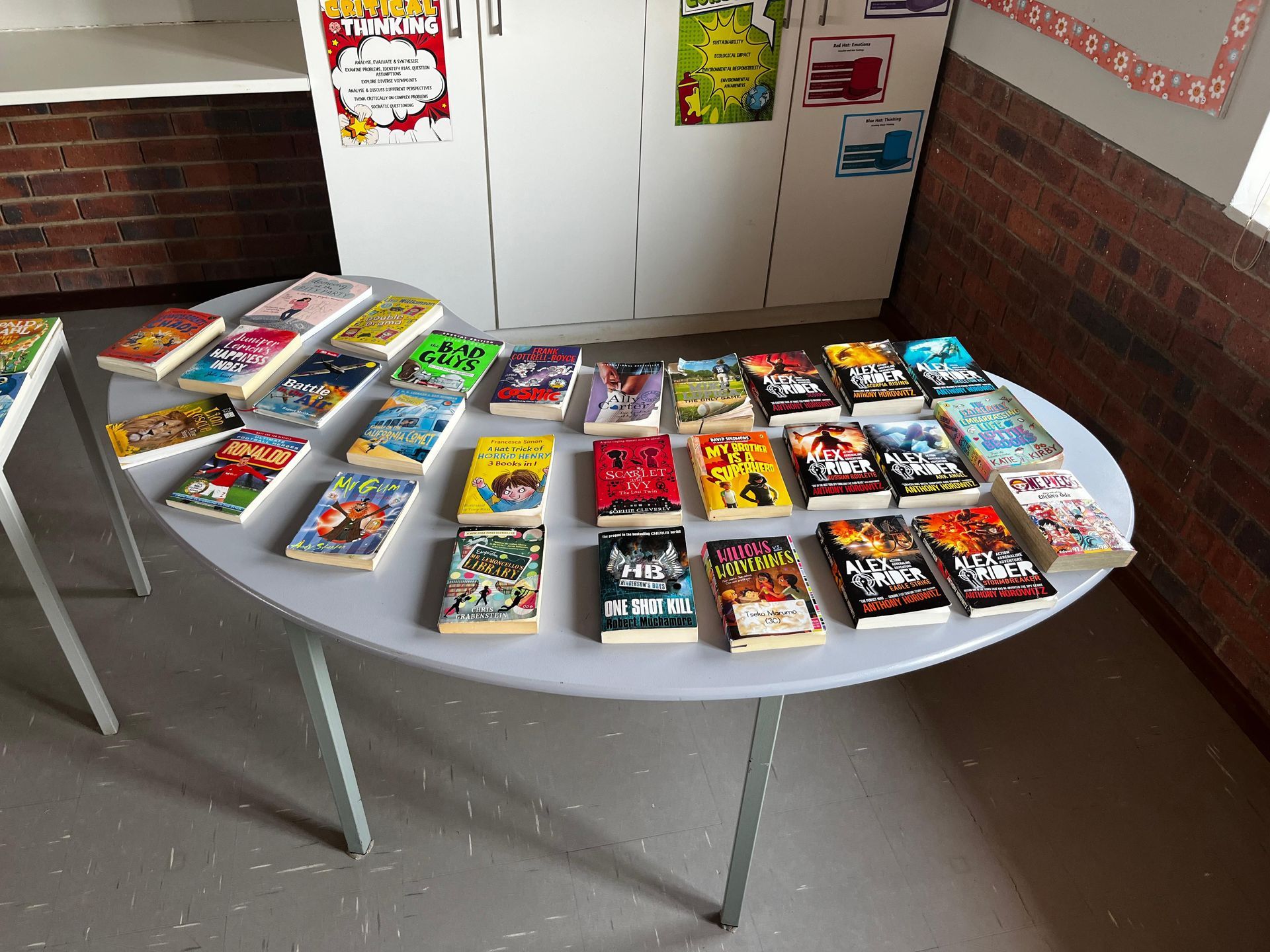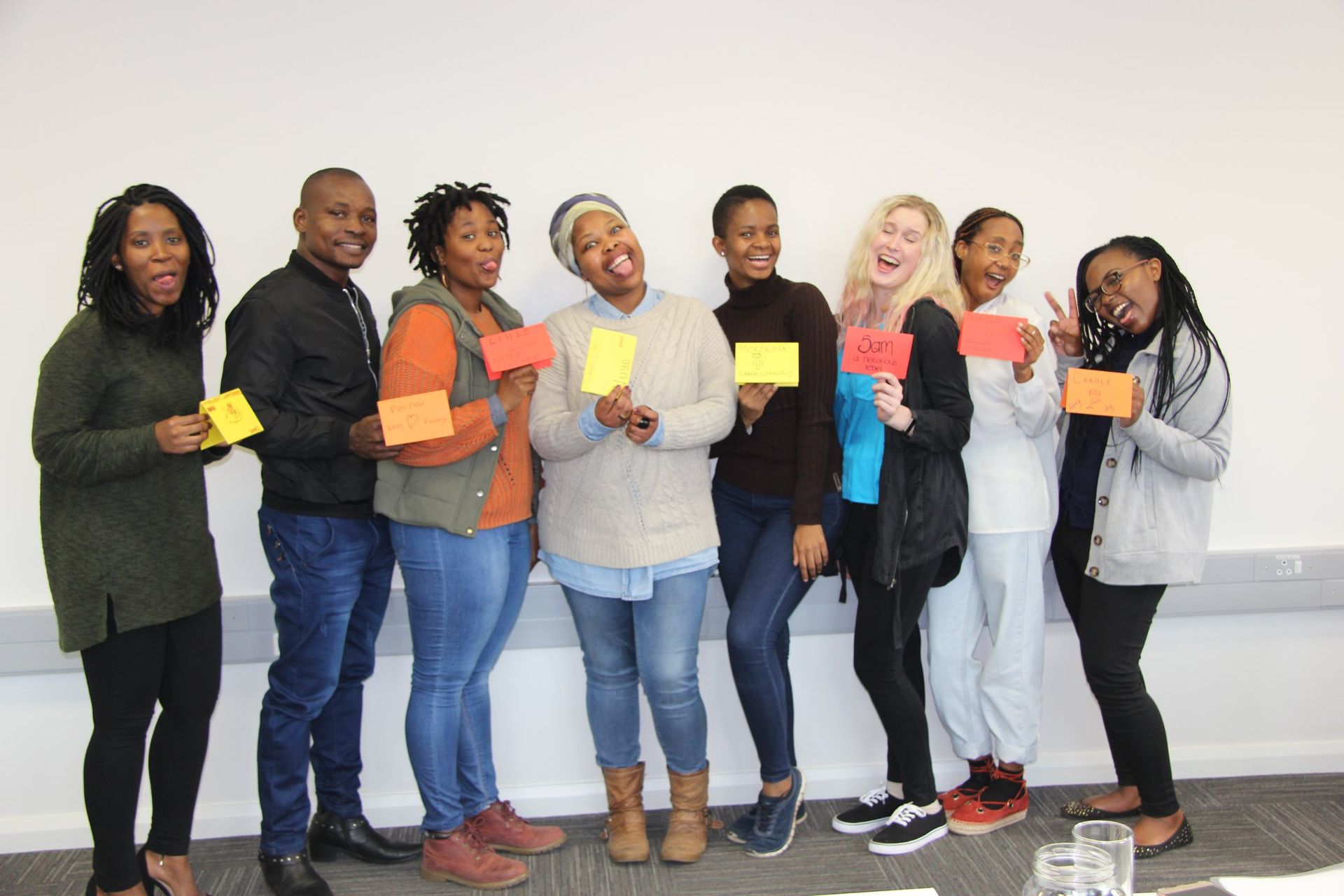How To Support Your Child Writing Matric During COVID-19
ADvTECH Group • July 16, 2020
Writing Matric During A Global Pandemic

Matric exams are a high pressure point in every teen’s life. These exams determine the future of your child and as a result, teens are under immense pressure to study and perform. With the added uncertainty of a global pandemic, disrupted school calendar and lockdown, it is also an unprecedented time for matriculants around the world. Support in the home environment is more important than ever and there are a few ways that you can help your child navigate this intense time.
1. Help your child get proper nutrition
Proper eating is imperative to the mental and physical health of your teen. During a stressful time, your child’s immunity may be compromised. They may not prioritise good nutrition. You can help by preparing food or encouraging your child to eat balanced meals at least three times a day. A variety of veggies, fruits, grains and proteins is optimal.
2. Encourage communication
Check in with your teen and allow them to express their frustrations or fears. You can offer them calming words of support and encouragement as well as providing them a safe space to vent and recover. Remember, exam time is a highly emotionally charged time
for teens and heightened mood swings are to be expected.
3. Help limit distractions
Help your teen to prepare a distraction-free study space and schedule. Committing as a family to limit loud TVs, radios or chatter while your teen studies can help them to feel supported as well as assist with their focus.
4. Offer learning support where you can
Let your teen know that you are here to help them learn. Perhaps you can help them with study cards or test their knowledge on certain sections from a textbook. Even just allowing them to recite notes to you can help with studying.
5. Celebrate the wins
Foster a positive environment by celebrating small victories. Whether it’s the completion of a simple study session or a big exam. This can be with hugs, verbal affirmation or perhaps even their favourite treat or meal.
6. Encourage rest
Teens writing matric are likely to have their heads buried in books for hours on end. Make sure to encourage your child to take breaks, rest and recharge. This will help take some of the pressure off your child and ensure that they are able to better absorb and retain studied information.
As parents, your best resource will always be other parents. Chat to them to find out how they are coping during these unprecedented times. Together you’ll be able to discuss effective ways of supporting your teens during their exams.
Add your custom HTML here

Celebrating multilingual education at Trinityhouse, where identity, inclusion and global readiness grow together. Experts: Samantha Nkosi, Raesetja Ntuli and Maché Piek (Trinityhouse Centurion Teachers) International Mother Language Day, celebrated annually on 21 February, offers schools across South Africa an opportunity to reflect on language inclusion, cultural diversity and identity. At Trinityhouse Schools, language education is not only about academic achievement. It is about building culturally confident, globally aware students who are proud of their roots. In the early years, language shape’s identity. When young children hear Sepedi, isiZulu, Afrikaans or their home language spoken in the classroom, they feel recognised and valued. Introducing home languages in Pre-Primary affirms cultural heritage at a critical stage of development. Children who encounter familiar words, songs and greetings settle more quickly into school life. Multilingual exposure through music, storytelling, indigenous games and augmented reality books strengthens vocabulary and builds early literacy foundations. Students explore the meaning of their names and surnames, deepening pride in their identity. When a child’s mother tongue is acknowledged, confidence grows. Participation increases. Classrooms become spaces where diversity is celebrated naturally. Early language inclusion supports emotional wellbeing and strengthens school readiness, creating confident students from the very beginning. As students’ progress through Preparatory School, continued development of home language skills alongside English strengthens academic performance. Research and classroom experience consistently show that students who maintain strong home language proficiency demonstrate improved comprehension, stronger reading skills and greater conceptual understanding. Teaching strategies such as repetition, guided group reading and small discussion circles allow multilingual students to participate without pressure. Students often explain concepts in Sepedi before bridging into English, reinforcing understanding and building academic confidence. Parents play a pivotal role in this journey. Daily reading in both English and home languages, storytelling and regular conversation strengthen vocabulary and cognitive development. A strong foundation in a home language enhances English acquisition rather than hindering it. Multilingual students develop cognitive flexibility, empathy and adaptability, essential skills in today’s interconnected world. Aligned with South Africa’s 11 official languages and a strong commitment to diversity in education, Trinityhouse continues to broaden its African language offerings. At Trinityhouse Centurion, Sepedi was introduced at Pre-Primary and Preparatory in 2019 and will be extended to Grade 8 in 2027. Offering Sepedi as a First Additional Language affirms students’ linguistic heritage within an academic setting. When students see their home language valued at high school level, it strengthens identity, belonging and pride. At the same time, multilingual students develop cultural awareness and global readiness. The Sepedi department will prepare students for the IEB National Senior Certificate examinations in their matric year. A structured academic pathway, rigorous assessment standards and active collaboration within the IEB Sepedi cluster across Pretoria and Gauteng will ensure consistency and academic excellence. Close cooperation between the Preparatory and High School departments will further support a smooth and well-coordinated implementation in 2027. Adolescence is a critical period of identity formation. Language inclusion directly influences student confidence, wellbeing and belonging. Being able to connect socially through a shared language reduces isolation and fosters community. Through Respect, Diversity and Inclusion initiatives, Public Speaking, assembly celebrations and events such as Heritage Day Fire Feast, Trinityhouse creates spaces where students celebrate linguistic pride through praise poetry, storytelling and song. These moments strengthen engagement, participation and cultural appreciation. International Mother Language Day reminds us that language is more than communication. It is memory, belonging and identity. At Trinityhouse, raising globally competitive students who are proud of their heritage means ensuring that cultural identity and academic excellence walk hand in hand.

By Laura Barrett, Intern Counselling Psychologist at Trinityhouse Glenvista Each year on 10 October , the world pauses to recognise World Mental Health Day, a reminder that mental well-being is not just an individual concern, but a shared responsibility among families, schools, and communities. As an Educational Psychologist working closely with children and families, I have seen first-hand how early conversations about mental health can change the course of a young person’s life. When emotional well-being is acknowledged and nurtured from a young age, children are better equipped to handle life’s challenges with confidence and resilience. Why conversations about mental health matter? Mental health is not a “grown-up” topic, it’s a human one. If children are not taught about emotions and coping mechanisms early on, they may grow into adults who struggle to manage stress, relationships, or change. Talking openly about feelings, naming emotions, and learning healthy coping strategies are all part of developing emotional literacy. These are the tools that help children and adults stay grounded through the ups and downs of life. At Trinityhouse, together with the world earlier this year, we explored the WRAP framework: Wellness, Resilience, Action and Purpose, a simple yet powerful approach to supporting children’s mental well-being. Each pillar plays a role in creating emotional stability and balance, not only for children but also for the families guiding them. Wellness begins with the basics. Adequate sleep, good nutrition, hydration, and rest may sound simple, but they lay the foundation for emotional regulation. A well-rested, nourished child is far more likely to cope effectively with daily stressors. Being mindful of mental health also involves small, practical steps like taking a few deep breaths before a stressful test or stretching during homework breaks. For adults, this might mean pausing for a cup of tea, taking a short walk, or simply naming what you’re feeling in the moment. Labelling emotions (“I feel anxious about this meeting”) helps calm the mind and re-engage rational thinking. Resilience isn’t about “always being strong.” It’s about learning to recover and grow after setbacks. Parents and teachers can nurture resilience by giving children space to express their struggles without judgement, then helping them explore possible solutions. When a child faces disappointment, a poor test result or a conflict with a friend, remind them of times they’ve overcome challenges before. Ask: “What helped you last time?” This reflective process empowers children to see themselves as capable problem-solvers, rather than passive victims of circumstance. Positive mental health requires active engagement, not just awareness. For families, this can mean creating calm, structured environments where children feel safe and heard. The Positive Parenting framework offers five helpful practices to support this: Empathy : Validate your child’s emotions instead of dismissing them. “I can see you’re upset about your toy” goes further than “Don’t cry, it’s not a big deal.” Positive Reinforcement : Celebrate effort and progress, no matter how small. A star chart or extra family time can be simple yet powerful motivators. Consistent Boundaries : Predictable routines and clear consequences make children feel secure. Boundaries should be calm, firm, and fair. Open Communication : Create family moments for honest sharing. Ask, “What was the best part of your day?” and really listen to the answer. Co-regulation : Young children often mirror their parents’ emotions. When you model calmness through deep breathing or gentle reassurance you teach them to regulate their own feelings. A sense of purpose is vital for both adults and children. It gives meaning to our actions and connects us to something larger than ourselves. Encourage children to explore hobbies and interests that bring them joy and fulfilment, whether it’s art, sport, volunteering, or spending time outdoors. These pursuits help build identity, confidence, and belonging. For parents, purpose can come from nurturing both their children’s and their own mental health. The saying “You cannot pour from an empty cup” is particularly true here. When parents take care of themselves, physically, mentally, and emotionally, they model balance and self-respect for their children. Recognising when a child is struggling Even with the best support, children can experience emotional challenges. Warning signs may include withdrawal from friends, sudden changes in sleep or appetite, irritability, or declining motivation. These can indicate stress, anxiety, or burnout. If you notice these signs, open a gentle conversation: “I’ve noticed you haven’t seemed yourself lately. Would you like to talk about it?” Sometimes, simply being heard is the first step toward healing. Continuing the conversation The most inspiring shift in recent years is how openly young people now speak about mental health. Many no longer see anxiety, sadness, or stress as weaknesses but as part of the human experience. This honesty offers hope for a more empathetic, emotionally literate generation. On this World Mental Health Day , let’s extend that conversation beyond schools and into our homes. Let’s practise a WRAP culture together by building Wellness, Resilience, Action and Purpose not only in our children’s lives but in our own. At Trinityhouse , we believe education extends beyond academics, it’s about nurturing the heart and mind. By fostering open dialogue, emotional awareness, and resilience, we aim to create an environment where every child feels seen, supported, and empowered to thrive. When families make mental health a daily priority, we don’t just raise stronger children, we raise a kinder, calmer and more connected generation.












